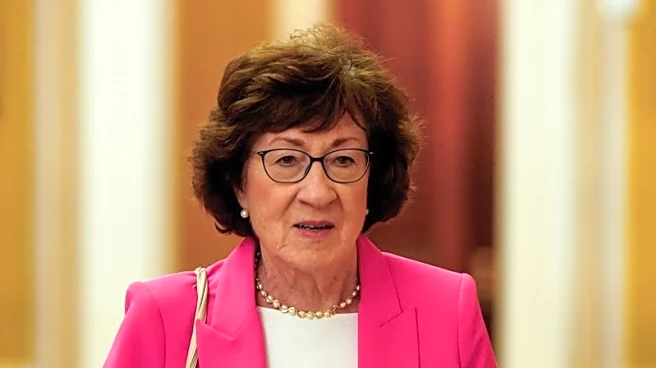What's Happening?
During a military parade in Beijing, a hot mic captured a conversation between Russian President Vladimir Putin and Chinese President Xi Jinping discussing the potential for medical advancements to extend
human life. Putin mentioned the possibility of continuous organ transplants leading to immortality, while Xi predicted that humans could live up to 150 years in this century. The conversation, broadcast live by Chinese state broadcaster CCTV, highlighted the leaders' interest in longevity and their countries' investments in anti-aging research.
Why It's Important?
The discussion between Putin and Xi reflects a significant focus on biotechnology and its potential to extend human life. This interest in longevity could drive increased investments in medical research and development, impacting global health policies and economic strategies. Russia and China are investing heavily in anti-aging technologies, which may lead to advancements in organ transplantation and regenerative medicine. The pursuit of extended lifespans raises ethical concerns and may influence international debates on the responsible use of biotechnology.
What's Next?
Following the conversation, Russia and China may continue to invest in biotechnology research, exploring ways to extend human life. This could lead to advancements in medical technologies and organ transplantation. The dialogue may also prompt international discussions on the ethical implications of pursuing immortality and the potential consequences for global health policies. Stakeholders, including political leaders and medical researchers, may react by advocating for responsible research practices and addressing human rights concerns.
Beyond the Headlines
The pursuit of immortality by Putin and Xi reflects a broader historical trend among leaders seeking to extend their rule indefinitely. This ambition raises ethical questions about the use of biotechnology for personal gain and the potential impact on society. The conversation also highlights cultural differences in approaches to longevity, with Eastern and Western perspectives potentially clashing over the ethical boundaries of medical advancements. Long-term shifts in global health policies may occur as countries navigate the implications of biotechnology-driven longevity.









